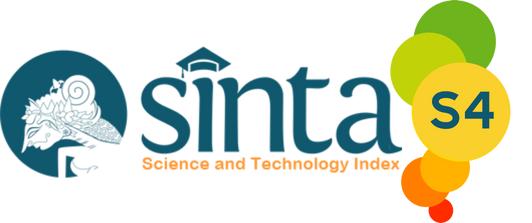The Relationship Between Memorizing the Qur'an and Students' Academic Achievement: Case Study of Science Subjects at Tahfidzul Quran An-Nahl Mataram Integrated Islamic Elementary School
DOI:
https://doi.org/10.29303/goescienceed.v5i3.357Keywords:
Memorizing The Qur'an; Science Learning Outcomes, Islamic Religious Education, Academic Education, CorrelationAbstract
This research analyses the relationship between memorizing the Al-Qur'an and students' academic achievement in Natural Sciences (IPA) subjects at SD IT Tahfidzul Quran An Nahl. This study uses a quantitative approach with a correlational design to measure the relationship between the amount and quality of memorizing the Al-Qur'an and science learning outcomes for students in grades 4 and 5. The research sample consisted of 27 students who were selected purposively. Data on the amount of memorization was taken from the accumulated results of daily evaluations of Al-Qur'an memorization. In contrast, the quality of memorization was assessed based on tajwid, Maharaj, and fluency. Science learning outcomes were obtained from the final summative assessment of even grades 4 and 5 semesters. Data were analyzed using Pearson's descriptive and correlational statistics. The research results show a positive correlation between the amount of memorization and the quality of memorization and science learning outcomes. These findings indicate that memorizing the Qur'an contributes to students' spiritual development and positively impacts their academic achievement, especially in science subjects. This research provides important insights for developing an integrative curriculum, combining religious and academic education to achieve holistic development of students.
References
Arif, M., & Nggolitu, I. (2019). Hafidz Qur’an and Its Influence toward High School Students Learning Achievement in Indonesia. IjtimÄ Iyya Journal of Muslim Society Research, 4(2), 175–196. https://doi.org/10.24090/ijtimaiyya.v4i2.2840
Asliyah, N., & Ananda, R. (2022). The effect of memorizing the Quran on students' mathematical logical intelligence. Desimal: Jurnal Matematika, 5 (1), 61-68. https://doi.org/10.24042/djm.v5i1.11521
Azavitra, Z. (2020). Study of Students’ Concentration in the Classroom with Quranic Recitation Background using Electroencephalogram. International Journal of Advanced Trends in Computer Science and Engineering, 9 (1), 158-165. https://doi.org/10.30534/ijatcse/2020/2991.12020
Fairuzillah, M., & Listiana, A. (2021). The Positive Impact of Memorizing the Qur’an on Cognitive Intelligence of Children. Proceedings of the 5th International Conference on Early Childhood Education (ICECE 2020), 538, 334-338. https://doi.org/10.2991/ASSEHR.K.210322.071
Karim, A., Cholily, Y., & Syaifuddin, M. (2021). DEVELOPING A SET MODULE WITH A GUIDED INQUIRY AND TAHFIDZUL QURAN TO IMPROVE STUDENTS’ CRITICAL THINKING. Kalamatika: Jurnal Pendidikan Matematika, 6 (2), 111-126. https://doi.org/10.22236/kalamatika.vol6no2.2021pp111-126
Khan, R., & Dzulkifli, M. (2021). Understanding hifdh and its effect on short-term memory recall performance: An experimental study on high school students in Saudi Arabia, 2 (1), 12-21. https://doi.org/10.32505/inspira.v2i1.2934
Kusaeri, K., & Ridho, A. (2019). Learning outcome of mathematics and science: Features of Indonesian madrasah students. Jurnal Penelitian dan Evaluasi Pendidikan, 23 (1), 95-105. https://doi.org/10.21831/PEP.V23I1.24881
Mulia, R., Neviyarni, N., & Alizamar, A. (2020). The Contribution of Self-Adjustment and Learning Skill to Qur’an Memorization Achievement of Boarding School Students. International Journal of Applied Counseling and Social Sciences, 1 (2), 60-68. https://doi.org/10.24036/005350IJACCS
Sirin, S., Metin, B., & Tarhan, N. (2021). The effect of memorizing the quran on cognitive functions. The Journal of Neurobehavioral Sciences, 8, 22 - 27. https://doi.org/10.4103/jnbs.jnbs_42_20
Tarmuji, N., Mohamed, N., Hazudin, S., & Ahmad, W. (2022). Linking Study of Memorising Quran with Academic Performance. Asia Pacific Journal of Educators and Education, 37 (1), 181-191. https://doi.org/10.21315/apjee2022.37.1.9
Tikhomirova, T., Malykh, A., & Malykh, S. (2020). Predicting Academic Achievement with Cognitive Abilities: Cross-Sectional Study across School Education. Behavioral Sciences, 10. https://doi.org/10.3390/bs10100158
Yundianto, D., Khatami, M., Fathony, A., Rangkuti, A., & Syahputra, W. (2023). Memorizing the Quran: Exploring Academic Hardiness, Self-Efficacy, and Perceived Social Support in Islamic Schools. International Journal of Islamic Educational Psychology, 4 (2), 225-243. https://doi.org/10.18196/ijiep.v4i2.19812
Downloads
Published
How to Cite
Issue
Section
License
Copyright (c) 2024 Jurnal Pendidikan, Sains, Geologi, dan Geofisika (GeoScienceEd Journal)

This work is licensed under a Creative Commons Attribution-ShareAlike 4.0 International License.







